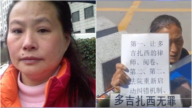【新唐人2011年4月29日讯】西藏流亡选举委员会4月27号公布的选举结果显示,现居美国的哈佛大学法学院研究员洛桑森格博士,当选为流亡政府总理。这标志着持续三百多年的西藏政教合一历史的结束。专家指出,新的局面会对境内藏人产生鼓舞,但是中共当局会很难堪。
参与这次选举的流亡藏人来自印度,美国,加拿大,欧洲,澳洲,台湾等13个国家和地区,投票人数有五万左右。由于中共施压,尼泊尔和不丹的两万多名藏人没能参加投票。
西藏流亡政府驻台湾代表、达赖喇嘛西藏宗教基金会董事长达瓦才仁表示,这次选举标志着西藏政教合一制度的结束,和民主制度的确立。
达瓦才仁:“而且最主要的是,结束了从1642年开始由五世达赖喇嘛建立的政教合一的制度,已经完全被结束了。不管从制度层面,从理论层面,或者从各个层面他都是完全走向民主化。也就是说,西藏民主从此走上没有回头路的民主之路了。”
洛桑森格现年43岁,出生于印度,毕业于德里大学,曾担任西藏青年大会领导人。1995年洛桑森格赴美国留学,获哈佛大学法学博士,毕业后担任哈佛大学法学院研究员。
流亡政府发言人土登桑波对《美国之音》表示,洛桑森格内阁面临的最大挑战是如何继续与中共政府对话,解决西藏长期以来的问题。
但是达瓦才仁认为,由于中共一直都没有和谈的诚意,所以流亡藏人内部任何的改变,都解决不了藏中之间的问题。而且中共当局对于达赖喇嘛不再担任政治领袖的局面相当恼火,因为这令中共希望通过扶持宗教领袖,从而控制西藏局势的手段难以实施。
达瓦才仁:“不管是今天的局面或者任何的局面,中共政府都会去攻击,都会说这是欺骗。当然中共政府肯定会感到难堪。因为他说不存在西藏问题,只有达赖喇嘛问题,那达赖喇嘛已经不是西藏政府的领袖,但是西藏问题的存在,他就不得不,必须要正面面对西藏的问题。而且很多以前可以用比较隐晦的方式,或者是宗教或者那些方式去解释的,现在他就不得不去直接面对。”
而对于国内的藏民,政教分离的新局面对他们来说,是一个鼓舞,令他们对未来的前景看得比较清晰。
达瓦才仁:“境内的西藏人民他们也希望西藏未来,或者说如果有一天达赖喇嘛不在,会有什么样的状况。会向什么样的发展。西藏境内那些考虑西藏民主未来的很多人,都希望有一个比较明确的未来的前景。那么这次通过民主选举以及达赖喇嘛退休,他其实就给人们已经提供了这样一个前景。”
洛桑桑格曾表示,他完全支持达赖喇嘛奉行的中间路线,就是谋求西藏在中国统治下获得有意义的自治,而不是独立。美国西东大学退休教授杨力宇对《自由亚洲电台》表示,洛桑桑格在可以预见的未来不会偏离达赖喇嘛的中间道路。但是从长远来看也存在变数。因为他属于年轻一代,这一代人很多主张独立。
中共当局日前抓捕了阿坝县格尔登寺的三百名僧人,并打死两名村民。印度达兰萨拉流亡藏人,正在全力抗议中共当局的新一轮血腥镇压。
新唐人记者秦雪、周平采访报导。
Tibetan Exiles’ New Leader
The Tibetan Government in Exile announced
on April 27 that Dr. Lobsang Sangay, a Harvard
Law School research fellow, was elected as
Prime Minister of the exiled Tibetans.
This marks the end of Tibet’s 300 years of theocracy.
Experts said that the new situation would be encouraging
to the Tibetans in China, but embarrassing to the CCP.
The voters-in-exile were from 13 countries, including
India, U.S.A., Canada, and Australia. The number of
voters was about 50,000. Due to the pressure from
the Chinese authorities (CCP), over 20,000 Tibetans
in Nepal and Bhutan were barred from voting.
Rep of Tibetan government in Taiwan, Dawa Tsering
said, the election marked the end of Tibet’s theocracy
and the establishment of a democracy.
Dawa Tsering: It marks the end of Tibetan theocracy,
which was established in 1642 by the 5th Dalai Lama.
From an institutional perspective or on the theoretical
level, the political system is being democratized.
Tibet is on the road of no return towards democracy.
Lobsang Sangay, 43, was born in India and graduated
from the Univ. of Delhi. He served as leader of Tibetan
Youth Congress. In 1995, he went to the U.S. and later
received his DJS from Harvard Univ. After graduation,
he worked as a research fellow at Harvard Law School.
Spokesman Thupten Samphel for Tibetan authorities
told VOA, Lobsang Sangay’s biggest challenge is how
to continue dialogue with the CCP for Tibetan issues.
Dawa Tsering believes the CCP lacks sincerity in
peace talks. Changes within the Tibetans in exile
cannot solve the Sino-Tibetan problems.
The CCP is very angry at the new situation, because
it can no longer control Tibet through supporting
religious leaders, as Dalai Lama has already quit.
Dawa Tsering: Regardless the situation,
the CCP government will attack it and call it cheating.
Of course, the CCP would certainly be embarrassed,
as it said that there was no Tibetan issue,
but only the issue with the Dalai Lama.
Since Dalai Lama is no longer the government leader,
the CCP will be forced to face the existing Tibetan issue.
In the past, it could use obscure or religious means.
Now it has to face the issue directly.
To the Tibetans in China, the situation of secularism
is an encouraging prospect for their future.
Dawa Tsering: The Tibetans inside Tibet also want a
future for Tibet. They want to know if the Dalai Lama
is no longer around one day, what kind of situation
and development will take place.
Many Tibetans inside China who hope for a democratic
future Tibet want to have clearer prospects.
This democratic election and Dalai Lama’s retirement
actually give such a prospect to the Tibetan people.
Lobsang Sangay has said that he fully supported
Dalai Lama’s pursuit of the middle road.
It is to seek Tibet’s autonomy under the Chinese rule,
instead of independence.
Retired professor Yang Liyu of Seton Hall University
told Radio Free Asia that in the foreseeable future,
Lobsang Sangay wouldn’t deviate from the middle road.
However, there can be changes in the long run.
He belongs to the younger generation.
Many of this generation advocate independence.
The CCP authorities recently arrested 300 monks
in Kirti Temple in Aba County and killed two villagers.
Tibetan exiles in Dharmsala, India, are protesting
the CCP’s new round of bloody crackdown.
NTD reporters Qin Xue and Zhou Ping





















